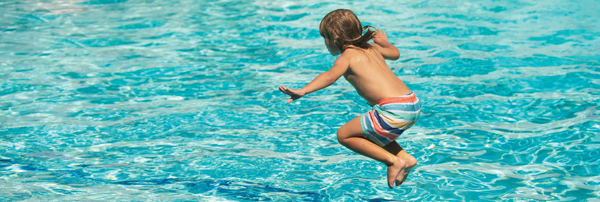
How to keep them safe, according to an expert
As summer rolls around, parents love seeing their children soak up the sunshine; after all, it finally tears them away from their screens. Although, this does give rise to one prominent concern: sun safety. Children’s skin is notoriously susceptible to the sun and, according to experts, they’re even more vulnerable in the water – is this true and, most importantly, how can we keep them safe?
Children’s skin is more vulnerable because its natural defence mechanisms aren’t fully developed, meaning a staggering 80% of total lifetime sun exposure takes place before the age of 18. Ultimately, children are at a higher risk of sun and eye damage resulting from UV rays, whilst being in the water enhances these risks. Why? Firstly, water has an obvious cooling effect; as your children have fun in the sea or swimming pool, they won’t feel like they’re burning. Meanwhile, reflective surfaces (e.g., pool tiles, inflatables) can amplify UV rays. If your child is set to be in the water, you must understand how you can keep them safe.
Thankfully, we have an ideal expert on hand to help ensure that children stay safe in the sun – and water – this summer. Danny Anderson is the owner of Aqua Splash, a business comprising of two incredible, water-based assault courses in Essex. As Danny welcomes thousands of excited children to this water-based activity every year, he is uniquely familiar with the risks that sun exposure can pose, including the proactive steps we can take.
To help you stay on the right track, he’s sharing his top tips:
1. Always remember to ‘use an ounce before leaving the house’.
A helpful rule of thumb when it comes to using sun cream is ‘Use an ounce before leaving the house’. By using this quantity (roughly), and allowing it to soak in for 30 minutes before going outside, you’ll be laying the right foundations. Most people reportedly use less than half this amount, as they severely underestimate how much sun cream is needed; make sure your little one is thoroughly covered.
2. Re-apply every two hours (minimum).
Whilst your children might not be happy to leave the pool and reapply their sun cream, it’s incredibly important that they do. As a minimum, you should re-apply every two hours; if your child is climbing inflatables or going down flumes, re-applying even more regularly is ideal.
3. Never go below SPF 30.
Arguably the most important thing to get right when it comes to skin protection is the SPF factor behind the sun cream you’re using; if this isn’t sufficient, it simply won’t fulfil its purpose.
When choosing sun cream for your children, always opt for SPF 30+ at the very least; if you can find a higher SPF, do! The higher the factor, the better protection your cream will provide.
4. Don’t forget the cream’s UVA rating.
Although your sun cream’s SPF factor is vital, it’s not the only important thing you ought to consider. Beyond this, it’s also crucial that you evaluate its UVA rating; more specifically, that you ensure the cream’s UVA rating is 4 or 5 stars – any less and you simply can’t rely
on its resilience.
Thankfully, creams with strong UVA ratings aren’t difficult to find. Almost all of the biggest brands on today’s market, including Nivea for example, boast 5-star UVA-rated creams – if you do your homework, you can find the perfect cream for you.
5. Consider hats and T-shirts.
As children are particularly vulnerable to sun damage, consider having yours wear hats and t-shirts whilst they play in the water. This way, you won’t need to worry about them burning, especially in the areas which are most susceptible (their shoulders and hair line).
Enjoying the sun without encountering any damage is possible, even when you’re excitedly climbing water-based inflatables! You just need to understand how much sun cream you should be applying and how regularly you ought to be re-applying, whilst considering the components of the cream itself.
For more information about Aqua Splash, visit www.aqua-splash.co.uk

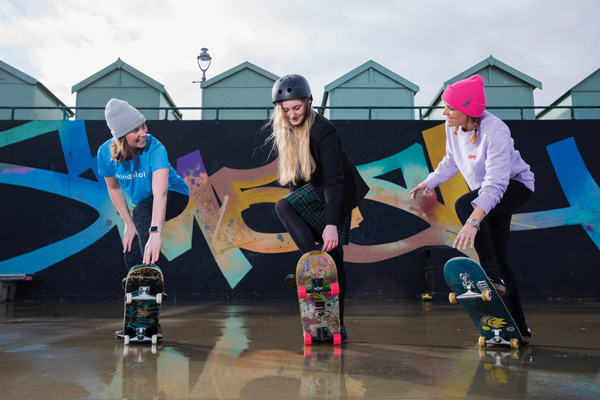
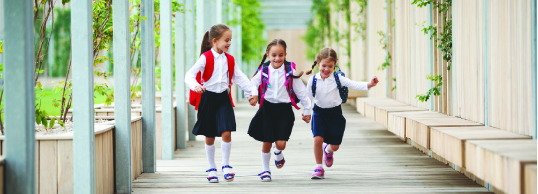
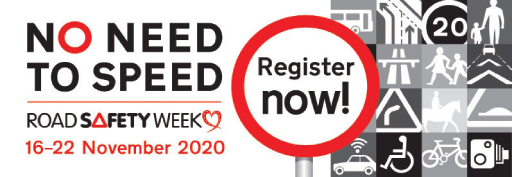
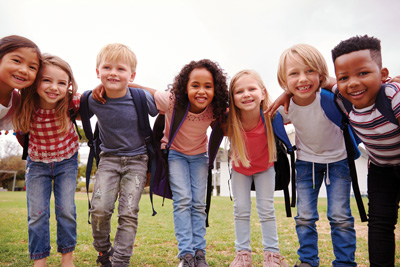
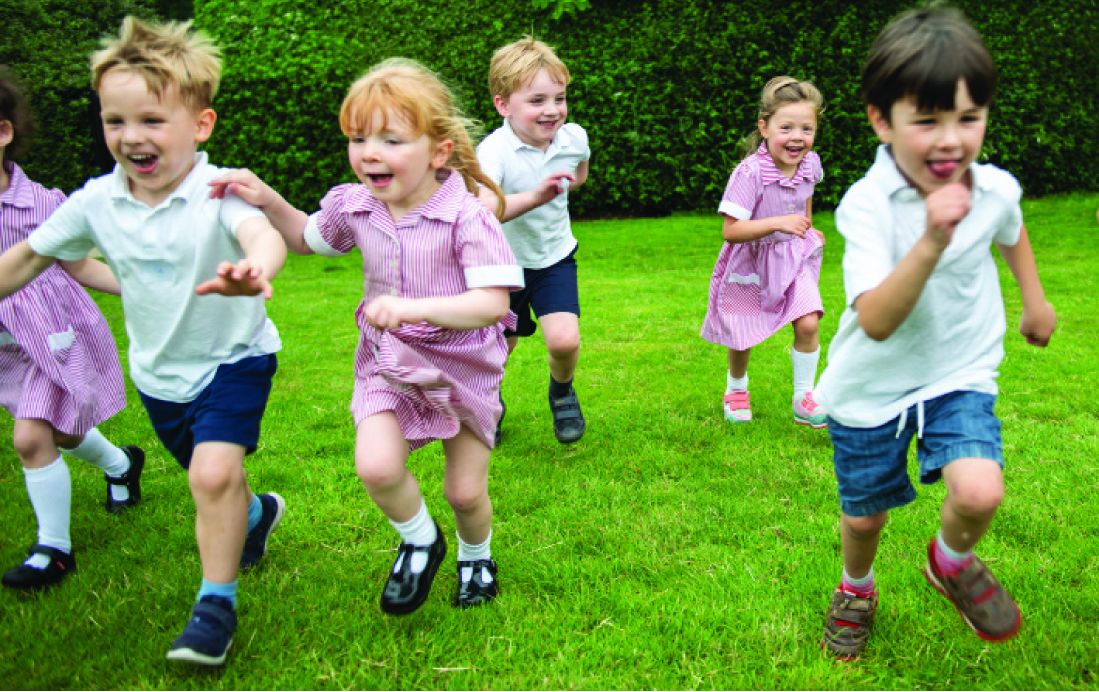
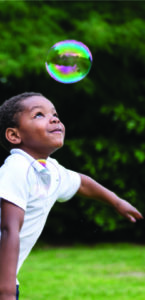 So how do we help a child become that independent person? As adults we need to find a balance between not overprotecting our children, or pressurising them to run before they can walk; our expectations need to be realistic, and we must bear in mind that children will always develop at very different rates. The ‘Early Years Development Matters’ takes us through a child’s Personal, Social and Emotional Development and exemplifies the ‘Characteristics of Effective Learning’ from birth to five years old; some good ideas and guidance may be found in the DfE document ‘What to expect, when?’ which has been developed for parents and carers. Furthermore, it is important that we encourage healthy risk taking, through climbing trees or doing something new, and the opportunity to embrace mistakes. In the words of Carol Dweck: “What we do not want is to encourage a fixed mind set where a child feels they are unable to do something for themselves so they will not try, we want a child who is comfortable trying for themselves and develops a growth mind set – they will experience the feeling that before success comes failure after failure. But that hard work and persistence works.”
So how do we help a child become that independent person? As adults we need to find a balance between not overprotecting our children, or pressurising them to run before they can walk; our expectations need to be realistic, and we must bear in mind that children will always develop at very different rates. The ‘Early Years Development Matters’ takes us through a child’s Personal, Social and Emotional Development and exemplifies the ‘Characteristics of Effective Learning’ from birth to five years old; some good ideas and guidance may be found in the DfE document ‘What to expect, when?’ which has been developed for parents and carers. Furthermore, it is important that we encourage healthy risk taking, through climbing trees or doing something new, and the opportunity to embrace mistakes. In the words of Carol Dweck: “What we do not want is to encourage a fixed mind set where a child feels they are unable to do something for themselves so they will not try, we want a child who is comfortable trying for themselves and develops a growth mind set – they will experience the feeling that before success comes failure after failure. But that hard work and persistence works.”

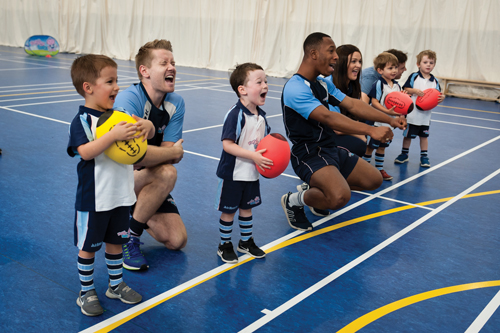
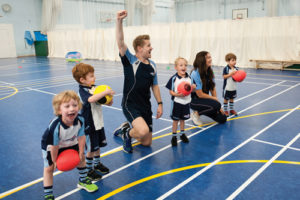 However, we are also living in an age where children have never had so many opportunities to try new things, have experiences, travel and learn life skills through their hobbies and interests. Although technology can be a distraction for parents and children, it is also the gateway to finding out what’s going on in your area such as sports, dance, arts and crafts classes. Parents can take advantage of taster classes and children can then decide which classes they want to take.
However, we are also living in an age where children have never had so many opportunities to try new things, have experiences, travel and learn life skills through their hobbies and interests. Although technology can be a distraction for parents and children, it is also the gateway to finding out what’s going on in your area such as sports, dance, arts and crafts classes. Parents can take advantage of taster classes and children can then decide which classes they want to take.









